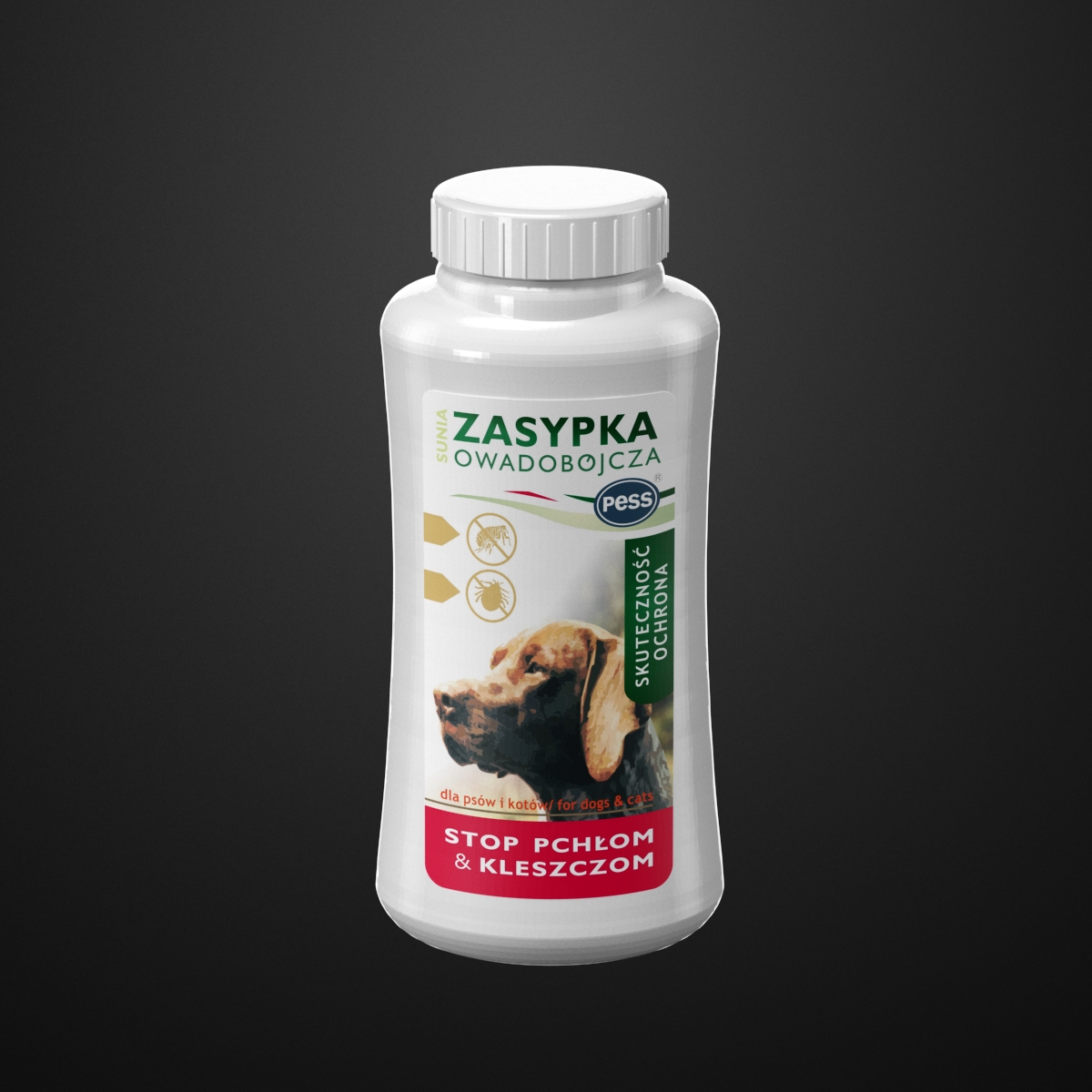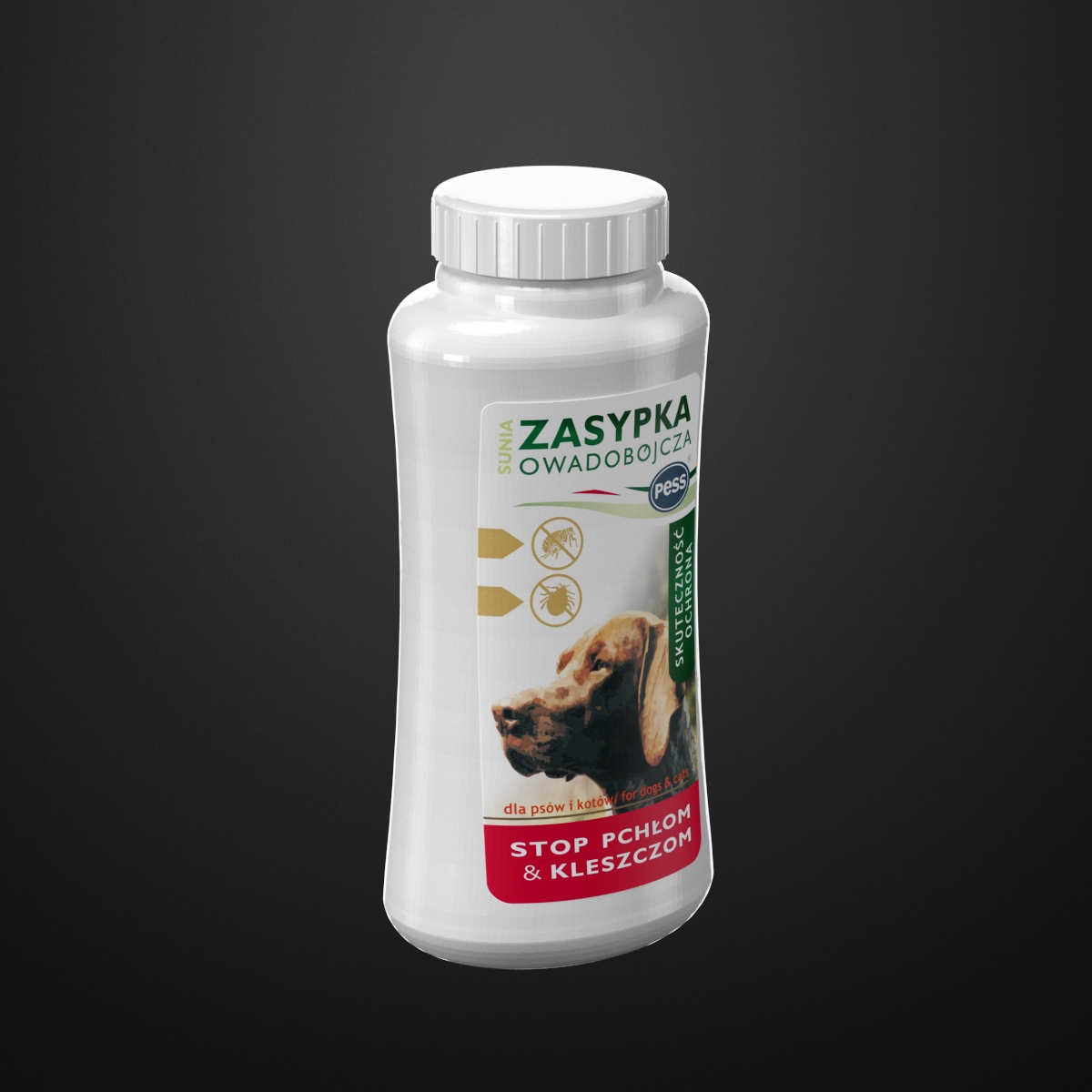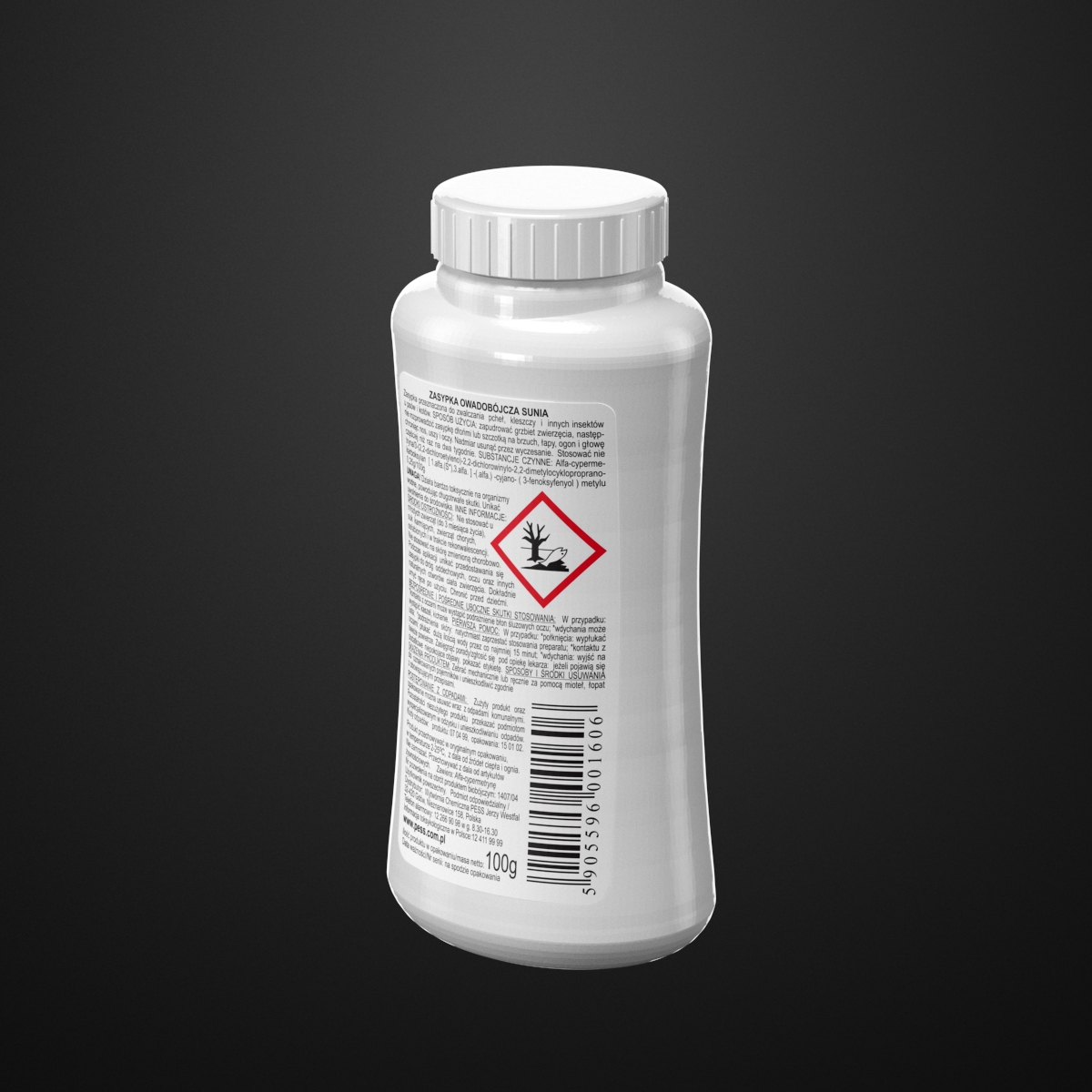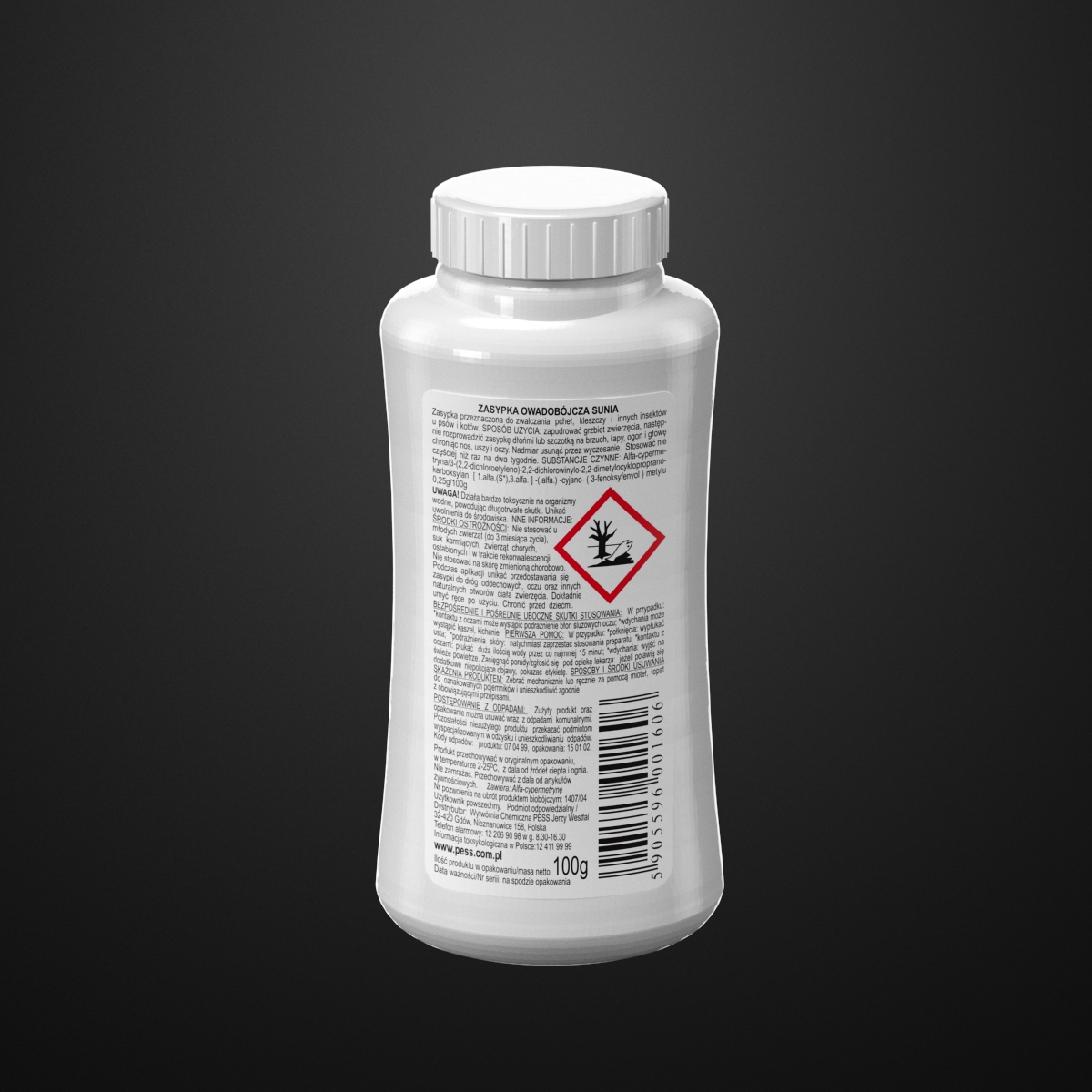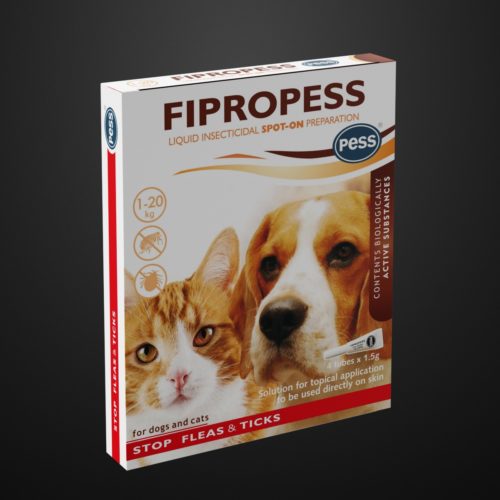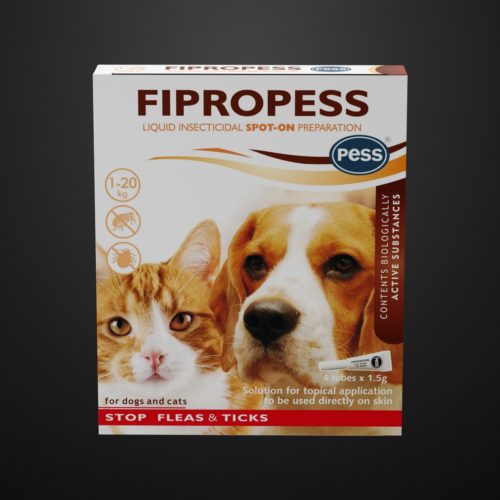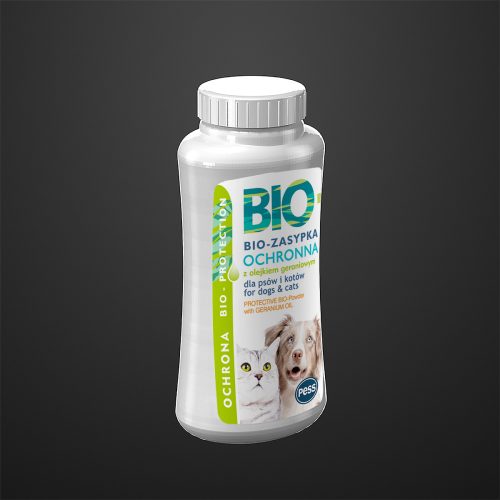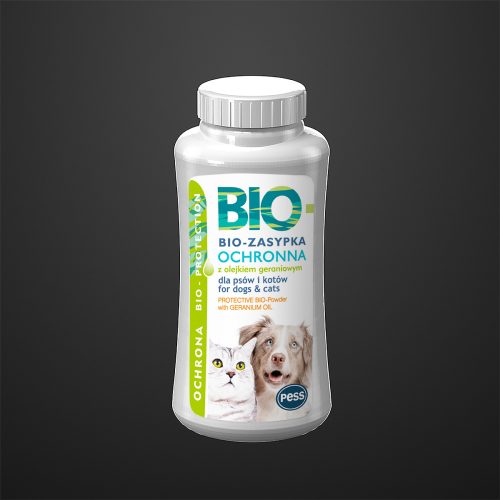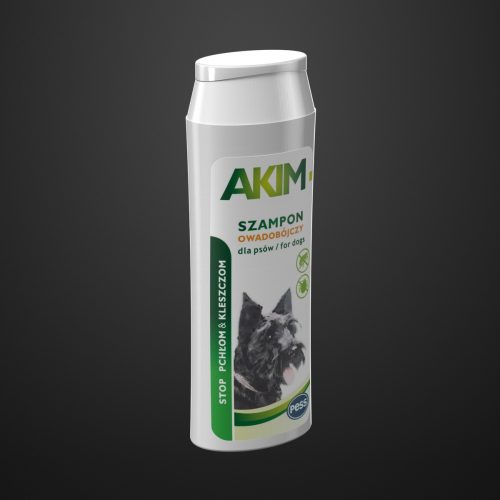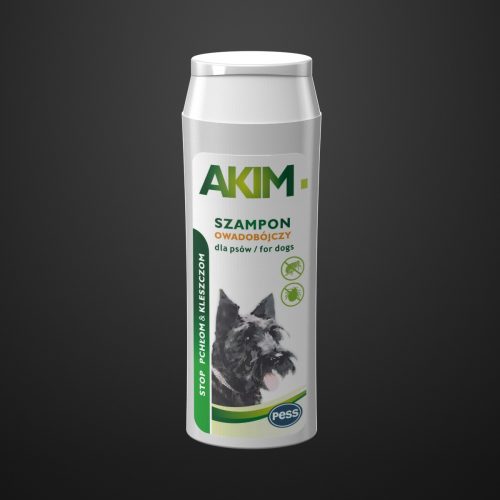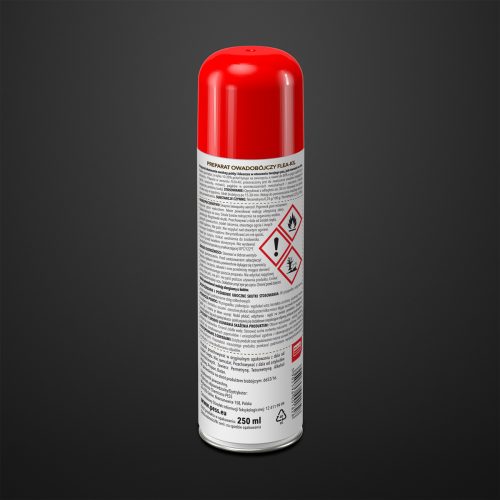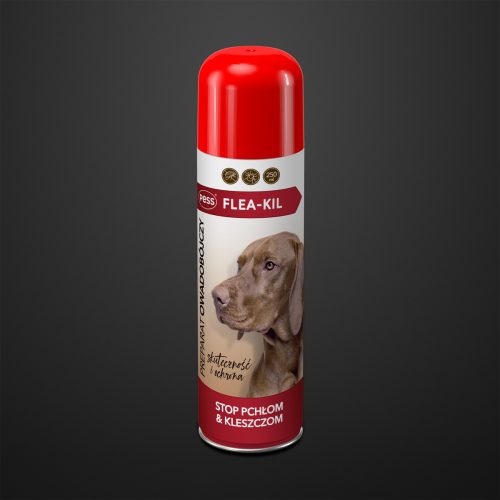Against fleas and ticks and other insects on dogs. Net weight 100g.
Insecticidal powder SUNIA
Description
Use
Insecticidal dusting powder is designed to control insects on the skin and in the hair of dogs, as well as for disinfestation of their bedding, baskets, kennels and other places of permanent residence. Application onto the animal’s skin and hair is easy and does not induce any resistance.
Do not use on any young animals up to 3 months of age, lactating bitches. The product must always be kept out of the reach of children and well away from any foodstuffs.
Biocidal product.
Product characteristics
| Effectiveness |
|
| Shelf life | 3 years |
| Contains | 0,25% (0,25 g/100g) Alphacypermethrin (CAS 67375-30-8, (1RS, 3RS) -3 (2,2-dichlorovinyl) -2,2-dimethylcyclopropanecarboxylate, (RS)-cyano -α 3-phenoxybenzyl) |
| Packaging | 100g |
Insecticidal powder consists mainly of pharmaceutical talcum fortified with a biologically active substance, and some additives facilitating its application and improving overall adhesion to the animal’s coat.
Application method
To be applied by dusting it uniformly over the entire surface of the animal’s body, except the muzzle. Any excess powder is to be brushed off the animal’s coat. After 1-3 hours any dead and stricken parasites are to be removed from the coat by vigorous combing.
When applying make sure it does not accidentally invade the animal’s respiratory tract, eyes, and other natural bodily orifices. Not to be applied on the oozing lesions on the skin. Not to be applied in animals allergic to its active ingredient – Alphacypermethrin.
If effective disinfestation of the animal’s immediate surroundings is completed in parallel, there is no need to have the treatment repeated within the next 10 – 14 days. In the event parasitic infestation has been noticed earlier on, the treatment may be re-applied, although not more often than twice a week. The dogs that are planned to be protected against parasites with an insecticidal collar, may be bathed with the aid of an insecticidal shampoo a few hours after the powdering.
Combating ticks
Ticks, which unfortunately are resistant to the active ingredients on the skin in the concentrations offered by the insecticidal collars and delicate use of insecticide sprays and powders, as well as any “spot-on” type of preparations, can be combated using the insecticidal powder topically, whenever a tick attached to the animal’s skin has actually been spotted. After approximately 1 hour a dead tick is to be twisted off from the animal’s skin. It is much easier to accomplish than attempting to remove an alive tick, besides there is no hazard that an animal might get accidentally infected during the procedure. This hazard happens to be even more imminent when the ticks attached to the animal’s skin are suffocated by having them smeared with butter or any other type of greasy agents. A suffocating tick may easily have the animal infected with its vomit, as it contains several bacteria of dangerous diseases.
Safety of application
Do not be intimidated by the prospect of an animal getting accidentally poisoned when it keeps licking itself off after the application of the insecticidal powder. The content of the biologically active substance Alphacypermethrin is only 0.25%, which in practical terms means that the actual poisoning hazard could only occur after several packages of the insecticidal powder have been ingested at any one time. The actual volume of the powder, when therapeutically applied to the skin, provides just a few milligrams of Alphacypermethrin only, which does not facilitate any likelihood of poisoning, even if the entire portion of the powder has effectively been licked off the skin. On the other hand, however, please make sure that the powder does not get licked off the skin immediately after the application, as this would significantly reduce overall effectiveness of the product itself.
Documents to download
Pozwolenie na obrót zasypka SUNIA
Karta charakterystyki zasypka SUNIA


